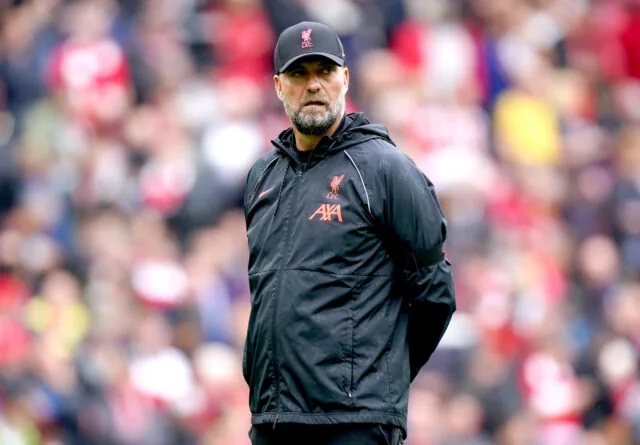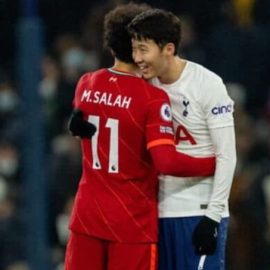The economic meltdown has taken many victims around the world, including some that hit close to home for football fans (Southampton and Gretna FC come to mind). It has forced many clubs to rethink their spending habits and cut back. However, some continue to carry on, blithely unaware of the dangers that lurk for football clubs that can’t control their cash flow. These clubs would do well to study the case of West Ham United.
West Ham had to jump every possible hurdle this past season, facing bankruptcy, enormous cutbacks and nerve-wracking (albeit deserved) court dates. Though these problems were certainly far from wanted, they taught West Ham a valuable lesson: that financial status is fleeting and that reorganization can sometimes lead to unexpected success.
The Real Madrids and Manchester Uniteds of this world would do well to take a hint from West Ham’s example, but so far they haven’t exactly bothered. In fact, the majority of the football press seems to have looked over West Ham’s shocking collapse and even more shocking successes at the end of the line.
September marked the beginning of a very difficult year for West Ham United. Manager Alan Curbishley left the club in a huff shortly after the close of the transfer window, citing a lack of control as his main reason for departure. “The selection of players is critical to the job of the manager and I had an agreement with the club that I alone would determine the composition of the squad,” Curbishley said. “However, the club continued to make significant player decisions without involving me. In the end such a breach of trust and confidence meant that I had no option but to leave.” Curbishley had led West Ham to a 10th place finish in the 2007-2008 season and had won two of his three games in charge in 2008-2009.
Alan Curbishley’s less than dignified exit forced West Ham to take a gamble. Gianfranco Zola, a playing legend but relatively inexperienced coach, took the reigns just a few days after Curbishley’s departure. West Ham promised to “build a team” around Zola, offering him control over transfers and enough funds to bring in a selection of players. It seemed as if the club was entering a new era-younger, fresher, and more hopeful.
However, just a few short weeks after Zola’s appointment West Ham’s main sponsor, XL Holidays, went into administration. The two parties immediately ended their relationship, leaving West Ham with thousands of unsellable replica jerseys and a five million pound shortfall. XL’s demise was one of the first casualties of the credit crunch in football, but many more were to follow.
Perhaps the biggest casualty was Icelandic businessman Bjorgolfur Gudmundsson, West Ham’s principal stakeholder. During October Gudmundsson’s assets began to tank. The bank he held many shares in, Landsbanki, was seized by the government and his holding company (Hansa) was forced into voluntary liquidation. West Ham remained the only asset in Gudmundsson’s portfolio worth any real money, so naturally the former billionaire had no choice but to put the club up for sale.
As if that weren’t enough to deal with, in November the seemingly never-ending legal battle the club had waged with Sheffield United over the 06/07 relegation fight finally came to a close. The courts ruled that West Ham would eventually have to pay Sheffield United compensation fees after fielding an illegitimate player during the end of the 06/07 season and consequently avoiding relegation.
So, to recap: West Ham entered the month of December with no principal sponsor, no principal stakeholder, an inexperienced coach, a looming debt, and a morale-busting 12-game streak in which the only win came in the form of an unimpressive 1-0 over Sunderland. Plus, the club knew it would be forced to sell some of its most valuable players in the January transfer window in order to make ends meet.
What is interesting about this story is where West Ham ended up once the season was over. One would expect such a burdened team to be fighting relegation, or at the very least standing at the precipice. But West Ham somehow managed to pull it together and finish in the top half of the table-9th place, to be exact. That’s one place better than last year’s finish, with more points AND a better goal difference. Sadly, however, with Barcelona’s treble and looming World Cup qualifiers West Ham’s heroic stand has gone largely unnoticed.
This needs to change. West Ham’s example will prove to be a wise one to follow once more teams feel the pinch of the recession. And they almost certainly will-recent reports show that Liverpool and Manchester United (among others) are just one poor season away from serious financial repercussions. If either were to fail to qualify for the Champions’ League, they would be in danger of entering administration, too. It’s a scary thought, but ignoring it won’t do anything to make it go away. Instead, clubs should learn from West Ham and recognize that they can work with a lot less than what they have.
In today’s economy it would be much more beneficial to bring in a talented and savvy assistant manager, like West Ham did with Steve Clark, then to spend millions of dollars on the Ronaldos and Kakas of the world. When the football “bubble” does eventually burst, it will be the resourceful teams like West Ham that survive and the greedy teams that will begin to fade away.
Add Sportslens to your Google News Feed!






